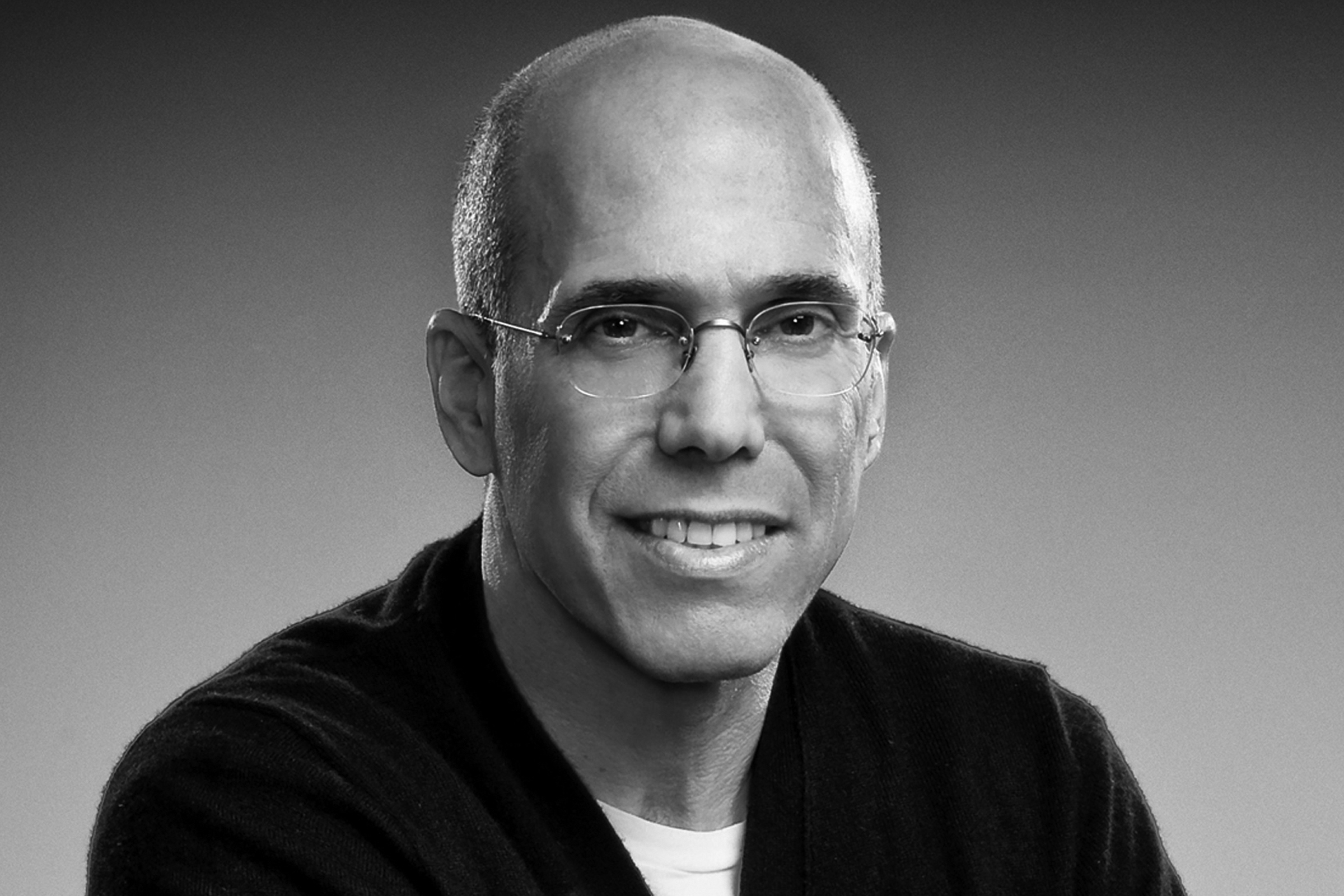When Jeffrey Katzenberg was at the phase of his career in which he was dispatched to get people coffee, he says, he never just got coffee. “I came back with coffee an omelet, a bagel or whatever” the now-storied movie executive says. He wanted fame and fortune and he had a strategy for getting it, which he sums up in two words: exceed expectations.
That credo, and his success in applying it, has carried Katzenberg to giddying heights in the movie industry, where he has made his name championing unlikely bets, and often overdelivering on the results. The most famous of these was his belief in the power of animation, and of the new technologies which would transform it. Under his management, Disney released such classics as The Little Mermaid and Who Framed Roger Rabbit, and after he cofounded Dreamworks with David Geffen and Steven Spielberg, that studio became known for the quality of its animated features, making megahits out of such children’s books as Shrek and How to Train Your Dragon, as well as conjuring up charming—and lucrative—talking animals in Kung Fu Panda and Madagascar.
The passion for those movies sprang from another of what Katzenberg believes are the fundamental passions that drive him. “The most beautiful thing in the world for me outside of my own family is laughter, and in particular, the laughter of children,” he says. “I’ve spent four decades making movies. And not only were they trying to exceed the expectation of my audience, but to bring laughter to children. Succeeding at that was, in itself, just the most wonderful reward.”
Of course there are times when Katzenberg’s zeal for over-delivering hasn’t paid off. Movies by and large remain stubbornly 2-D despite his campaign to bring 3-D to cinemas. And Quibi, his recent big bet on making movies that are as small as a phone, notoriously lost its investors more than a billion dollars. He has not let that deflate him. “I was very proud of [Quibi], even though it was a monumental flop,” he says. “It was a ride-of-a-lifetime flop as opposed to just a crash and burn—although it did crash and did burn.”
Indeed, Katzenberg says his “bottomless well of the need to win” still brims over. “I’m as competitive today as I’ve ever been,” he says, “and I expect what I am doing today will likely be more impactful, and more valuable, than anything I’ve done to date, even if it’s not as memorable.” His newest enterprise, WndrCo (pronounced Wonder Co), is a technology investment firm with a focus on companies that provide cybersecurity for individuals.
At the same time, he’s also pursuing the third of the fundamental principles that drive him. In true media mogul fashion, he got it from his celebrity mentor Kirk Douglas. “He said the 12 most important words anybody’s ever said to me in my life, which were, “you haven’t learned how to live until you’ve learned how to give,” says Katzenberg. Most recently Katzenberg has been spreading his social and actual capital around the issue of homelessness, including funding a program at UCLA that sends doctors to Los Angeles’ Skid Row to offer critical care. Homelessness is a problem that has defeated many philanthropists and politicians, but Katzenberg is undaunted. “Give me something that is improbable or impossible,” he says. “And that’s my home address.”
- Why Trump’s Message Worked on Latino Men
- What Trump’s Win Could Mean for Housing
- The 100 Must-Read Books of 2024
- Sleep Doctors Share the 1 Tip That’s Changed Their Lives
- Column: Let’s Bring Back Romance
- What It’s Like to Have Long COVID As a Kid
- FX’s Say Nothing Is the Must-Watch Political Thriller of 2024
- Merle Bombardieri Is Helping People Make the Baby Decision
